Karl Ho
University of Texas at Dallas
The New Taiwan Electorate:
Structural Changes in 2024 Elections
Prepared for "The 2024 Presidential and Legislative Elections in Taiwan: Implications for the United States and the World" Roundable hosted at the Southern Methodist University, February 19, 2024, Dallas, USA
-
Karl Ho is:
- Professor of Instruction at University of Texas at Dallas (UTD) School of Economic, Political and Policy Sciences (EPPS)
- Director, Taiwan Studies Project, UTD
- Organized Taiwan Democracy Symposium at UTD
- Founder, Taiwan Research Academy at UTD
- Co-founder of the UTD Social Data Analytics and Research program (SDAR)
- Founder of DataGeneration.io
- Author of Data Programming
- Co-edited Taiwan: Environment, Political and Social Issues (2021)
- Co-Principal Investigator of the Hong Kong Election Study project
- Website: karlho.com (talks, lectures, publications)
Speaker bio.
Introduction
The 2024 elections in Taiwan witnessed notable changes in multiple directions. First, the party system could see a "breaking the mould" moment when the third party emerges to impose durable change to the two party equilibrium. More importantly, the Taiwan People's Party (TPP) builds a new constituency composed of primarily educated and young voters who strongly refuse the two major parties.
These voters will be likely to change the structure of the electorate divided generally on traditional issues of national identity and relationship with China. This structural change could be systemically reshaping the party system and uttering an era of "new politics" in the new democracy.
Observing Taiwan elections 2024

Observing Taiwan elections 2024

Observing Taiwan elections 2024

Observing Taiwan elections 2024

Taiwan elections 2016 - 2022


2016
2018

2022
2020
Taiwan elections 2016 - 2024


2016
2018

2022
2020

2024

Source: Taiwanplus.com
Taiwan elections 2016 - 2024


2016
2018

2022
2020

2024

Source: Taiwanplus.com
Taiwan elections 2016 - 2024


2016
2018

2022
2020

2024


2016
2018

2022
2020
Party in parliament

-
Kuomintang (KMT)
-
Democratic Progressive Party (DPP)
-
Taiwan People's Party (TPP)
Political Parties
Political Parties
-
Kuomintang (KMT)
-
Democratic Progressive Party (DPP)
-
Taiwan People's Party (TPP)



Observations
-
2024 elections are primarily driven by expanded middle segment of the electorate.
- Generally apprehensive of either major party and Chinese influence
- Where is the "Hong Kong" factor?
- In 2020, DPP's electoral support was greatly helped by the "Hong Kong" factor including rejection of one-country, two-systems and generally CCP coercive approach of influence through blunt force and hard power.
- Sympathetic sentiment of Hong Kong protesters and pro-democracy supporters almost absent in 2024 (except Jaw Shaw-kong's mention of Jimmy Lai during interviews)
- Taiwan voters' indifference to China influence is notable in this election, which leads to little or no effect in DPP's campaign strategy of "China's interference".
Observations
-
New structure:
-
Close to 30% of new voters show disdain of both blue and green camps (namely KMT and DPP)
-
Young (middle schoolers), educated, middle class
-
Flooded rallies in Taipei in support of TPP (Ko and Huang)
-
-
Implications:
-
Third party?
-
Both DPP and KMT must reform!
-
Overview
China factor in Taiwan politics
China Manipulate elections as political warfare
Election interference: Some literature
Public opinion
Media and social media
Conclusion: Ramifications and Implications
Addendum: thought-provoking questions
China factor in Taiwan politics
-
Chinese identity
-
Trade
- 2000's: ECFA, CSSTA
-
Election time interference
-
1996: Missile crisis
-
2020's PLAAF incursions
-
Row over "92 Consensus"
-
Ban Taiwan from WHA, ICAO
-
De-recognitions (nine countries including Honduras (2023), Nicaragua (2021))
-
Xi's address to Taiwan on "92 consensus"
-
PLAAF incursions
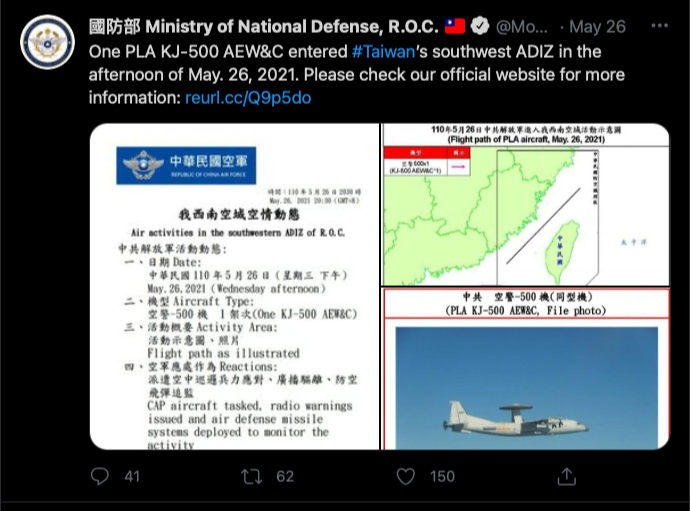
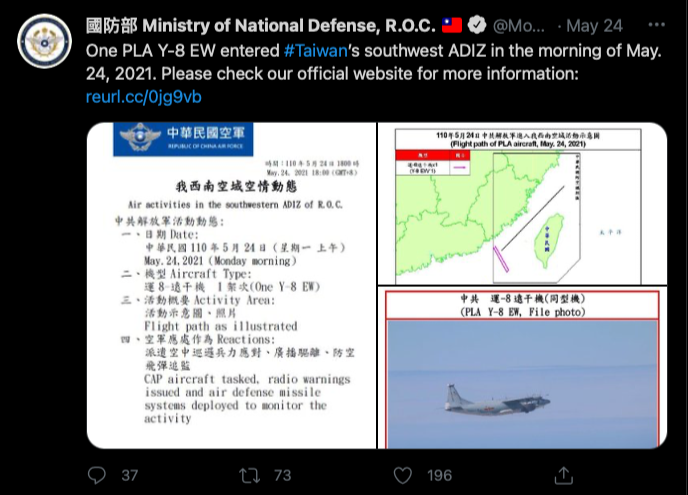
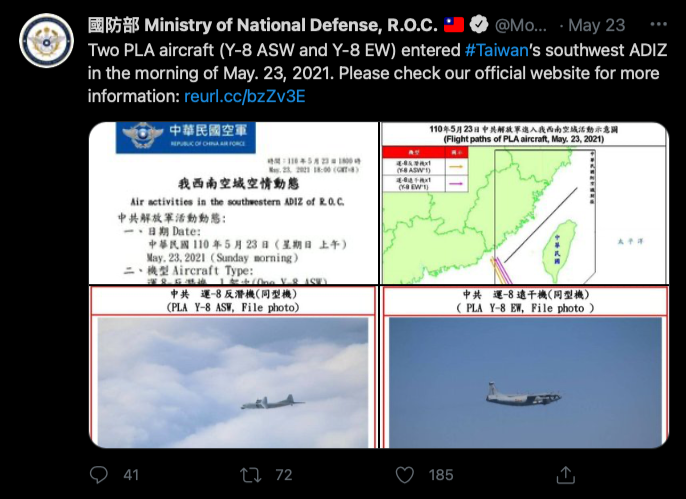
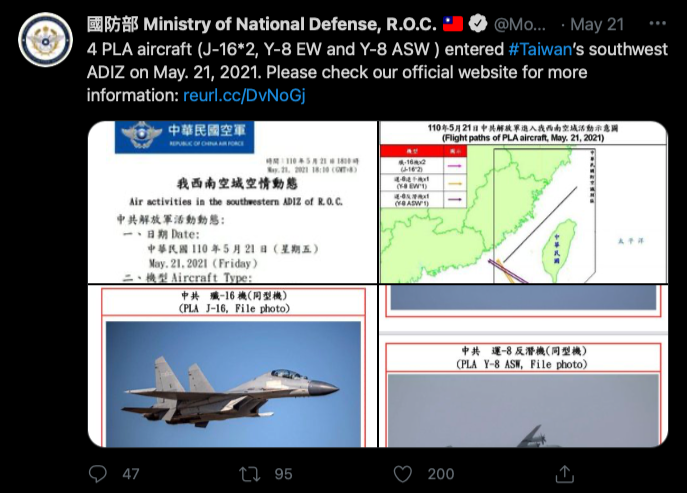
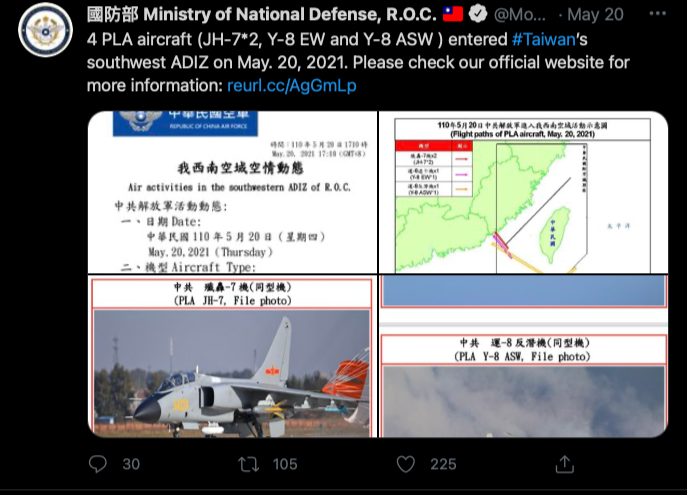
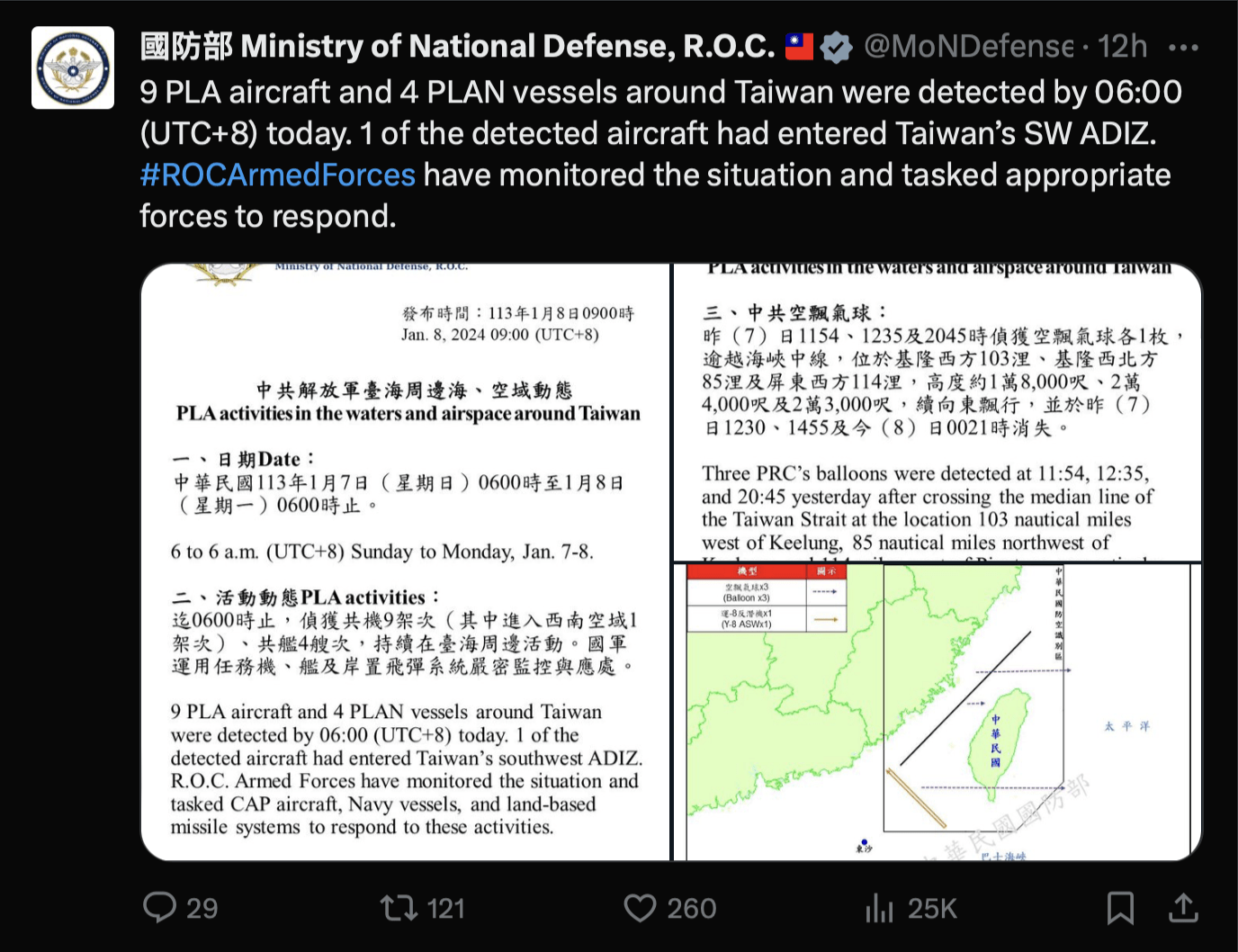
Barss (2022)
- documents China/CCP's records and attempts to influence elections in Taiwan
- Media
- Economic connections
- Parties
- Politicians
- Internet and social media (Disinformation and Misinformation)
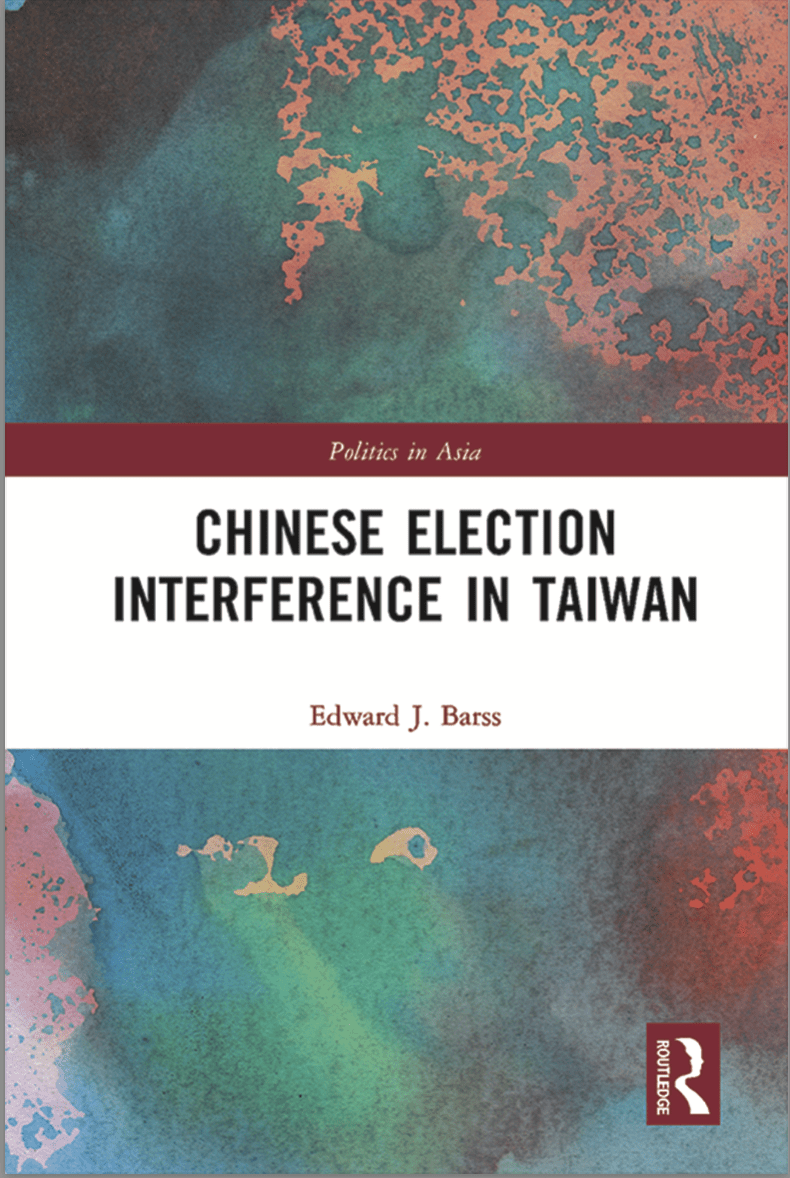
Wang (2024)
- China's intention of manipulating public opinion and electoral outcomes is not questionable.
- When out of means, options for Beijing become limited except hard power coercion
All indications show that that Chinese leaders will continue their uncompromising policy toward Taiwan — and the history of tense and chilly cross-Strait relations under DPP leadership may repeat itself should Lai win the election on 13 January."
- TY Wang 2024
-
Objectives
-
Win support for Pro-Beijing agenda
-
Divide and Conquer
-
Undermine democratic institutions
-
Electoral systems
-
Party systems
-
Judicial systems
-
-
-
Ultimate goal: Lower Enemy Guard and Expand Control
-
Hong Kong example: stealing voting data, now change the rules
China Manipulates Elections as Political Warfare
-
Election systems
-
Party system:
-
Pro-Beijing parties
-
"Neutral/Middle of the Road" parties
-
Pan-democratic parties
-
Target leaders for attacks
-
Plant "radical" dissent parties
-
Negotiations through "middle-man"
-
-
-
Media and Social Media
-
EMCB
-
Advertising (and PR) industry
-
From Covert to Overt intervention: How China Divides and Conquers in Hong Kong
Formula/Sequence for success:
- Gradual process ("Time is on our side")
- Instill Stockholm syndrome
- Dissolve opposition organization and resolve
- Elimination by new "law"
Who do you think is making fake news during
the election? (TIGCR 2020)
| Source | Percent (multiple selection) |
|---|---|
| Candidates | 48% |
| China | 47.85% |
| Blue media | 46.04% |
| Green media | 44.29% |
| DPP | 31.95% |
| KMT | 30.58% |
What is the impact of fake news on society? (TIGCR 2020)
| Impact | Percent (multiple selection) |
|---|---|
| To influence election results | 51.73 |
| To make political divergence | 56.97 |
| To make people divergence | 65.84 |
| To cause social panic and chaos | 67.74 |
| Let interested people influence the election easily | 64.28 |
| No effect | 2.16 |
Taiwan Talkshows on YouTube
| Program | Subscription | totalviews | novideos | viewpervideo | Channel |
|---|---|---|---|---|---|
| 關鍵時刻(劉寶傑) | 3,060,000 | 4,514,719,289 | 33500 | 134,767.74 | EBC |
| 少康戰情室(趙少康) | 1,410,000 | 1,809,366,976 | 33946 | 53,301.33 | TVBS |
| 新聞大白話(彭志宇) | 1,250,000 | 1,930,234,216 | 26,742 | 72,179.87 | TVBS |
| 新聞深喉嚨(王又正) 頭條開講 | 1,120,000 | 938,655,544 | 16206 | 57,920.25 | CTI |
| 年代向錢看(陳凝觀) | 1,070,000 | 875,671,569 | 17993 | 48,667.35 | ERA |
| 新聞挖挖哇(鄭弘儀) | 907,000 | 969,734,640 | 17914 | 54,132.78 | JET |
| 台灣最前線(許仲江) | 841,000 | 750,144,176 | 33671 | 22,278.64 | FTV |
| 國民大會(于美人) | 626,000 | 423,730,053 | 12055 | 35,149.73 | TVBS |
| 新聞龍捲風 | 594,000 | 409,607,276 | 4814 | 85,086.68 | CTI |
| 大政治大爆卦 | 545000 | 424,621,139 | 15318 | 35,149.73 | CTI |
Taiwan News channels on YouTube (TIGCR)
| News Channel | Label | 2018 | 2019 | 2020 | 2021 |
|---|---|---|---|---|---|
| TVBS 新聞台 | TVBS | 24.45 | 26.78 | 31.94 | 31.45 |
| 三立新聞台 | SET | 23.21 | 27.05 | 31.95 | 29.33 |
| 東森新聞台 | ETTV | 22.79 | 26.83 | 29.06 | 24.3 |
| 民視新聞台 | FTV | 20.72 | 22.38 | 24.84 | 22.22 |
| 年代新聞台 | ERA | 9.07 | 10.93 | 16.27 | 10.41 |
| 中天新聞台 | CTI | 19.02 | 24.8 | 24.58 | 9.65 |
| 壹電視新聞台 | NTV | 5.88 | 8 | 8.98 | 8.35 |
| 中視新聞台 | CTV | 2.65 | 3.7 | 3.82 | 6.63 |
| 非凡新聞台 | USTV | 4.2 | 4.88 | 7.28 | 5.86 |
| 寰宇新聞台 | CN | 2.56 | 3.08 | 3.92 | 3.71 |
| 華視新聞頻道 | CTS | 1.61 | 1.44 | 1.46 | 2.2 |
| 寰宇新聞二台 | CN HD | 1.56 | 1.2 | 1.67 |
"China interference" (中國介選) on news

| Channel | Reports | Label |
|---|---|---|
| 民視新聞網 | 51 | FTV |
| 三立LIVE新聞 | 32 | SET |
| 三立iNEWS | 23 | SET |
| 全國第一勇 | 22 | FTV |
| 鏡新聞 | 20 | MNEWS |
| 三立新聞網SETN | 17 | SET |
| 年代向錢看 | 14 | ERA |
| 自由時報電子報 | 14 | Libety Times |
| 華視新聞 CH52 | 14 | CTS |
| 台視新聞 TTV NEWS | 13 | TTV |
| 民視讚夯 Formosa TV Thumbs Up | 13 | FTV |
| 94看新聞 | 12 | SET |
| 中天新聞 | 9 | CTI |
Election interference by a foreign power can increase political partisanship in a targeted state and can be an effective tool for throwing weight behind a candidate.
Wilson (2022)
- When external governments intervene into democratic elections in a partisan manner, domestic political actors will react strategically.
- Domestic political actors will seek to exploit the intervention for their own political gain.
CCP's new strategy:
- the threats approach have been replaced with narrowly targeted efforts such as politicians and party leaders to mobilize Beijing-friendly segments of Taiwan’s population.
As a result...
-
China factor operates differently in 2024 elections
-
Any connections with China can be construed in campaign strategy as unpatriotic:
-
China becomes liability/baggage to parties supporting China/peace/trade....
-
China becomes assets/capital for parties opposed any interactions
-
Implications
-
Will Taiwan break the mold and become a three party system?
-
Three-player game should lead to a result of coalition with two of the three players (e.g. Britain in 2010).
-
In the Taiwan case, building coalition had a bad record, thus unlikely to build a stable government without majority.
-
How likely the new government can improve cross-Strait relations?
The Internet and the Democratization of Civic Culture
-
Four pillars for civic culture:
-
Knowledge
-
Loyalty to democratic values
-
Practices and routines
-
Identity as citizens
-
Political Polarization: Three Party Structure




Takeaway
-
Asymmetry of impacts in the national identity continuum prevails. Independence proponents have been showing stronger support for DPP than unification proponents to KMT.
-
Taiwanese identity polarizes further the blue and green in 2016.
-
Economic factors may not be the predominant driving forces of future elections, in competition with other identity factors and party effects.
Critical question:
Which party can help maintain status quo better than others?
Takeaway
Most important issue: Taiwan
Source: TEDS, National Chengchi University
| Issue | Percentage |
|---|---|
| Economic development | 35.19 |
| Cross-strait relations | 20.22 |
| Education policy | 13.86 |
| Judicial reform problem | 11.34 |
| Annuity reform | 5.61 |
| Transitional justice | 2.60 |
| No opinion | 2.45 |
| It's hard to say | 1.27 |
| Refuse to answer | 0.83 |
| Energy policy | 0.65 |
| House prices | 0.43 |
| National defense problem | 0.29 |
| Livelihood issues | 0.16 |
| Corruption Problem | 0.10 |
| Income inequality | 0.10 |
| Social welfare problem | 0.05 |
| Don't know | 4.84 |
| Total | 100 |
Most important issue: Taiwan
Source: TEDS, National Chengchi University
| Issue | Percentage |
|---|---|
| Economic development | 35.19 |
| Cross-strait relations | 20.22 |
| Education policy | 13.86 |
| Judicial reform problem | 11.34 |
| Annuity reform | 5.61 |
| Transitional justice | 2.60 |
| No opinion | 2.45 |
| It's hard to say | 1.27 |
| Refuse to answer | 0.83 |
| Energy policy | 0.65 |
| House prices | 0.43 |
| National defense problem | 0.29 |
| Livelihood issues | 0.16 |
| Corruption Problem | 0.10 |
| Income inequality | 0.10 |
| Social welfare problem | 0.05 |
| Don't know | 4.84 |
| Total | 100 |
Party identification
Source: National Chengchi University, https://esc.nccu.edu.tw/PageDoc/Detail?fid=7805&id=6962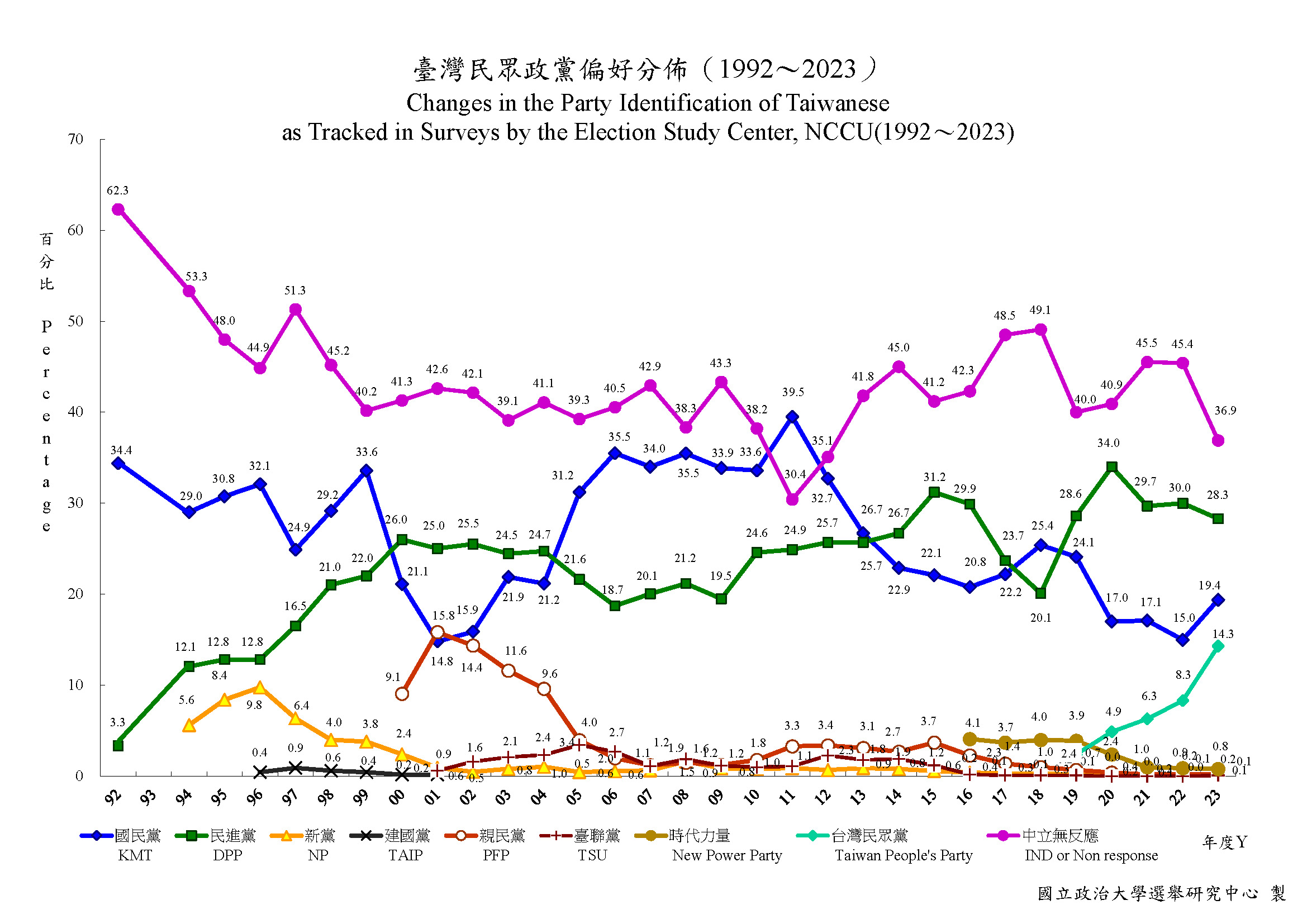
Party identification
Source: National Chengchi University, https://esc.nccu.edu.tw/PageDoc/Detail?fid=7805&id=6962
Independence vs. Unification
Source: National Chengchi University, https://esc.nccu.edu.tw/PageDoc/Detail?fid=7805&id=6962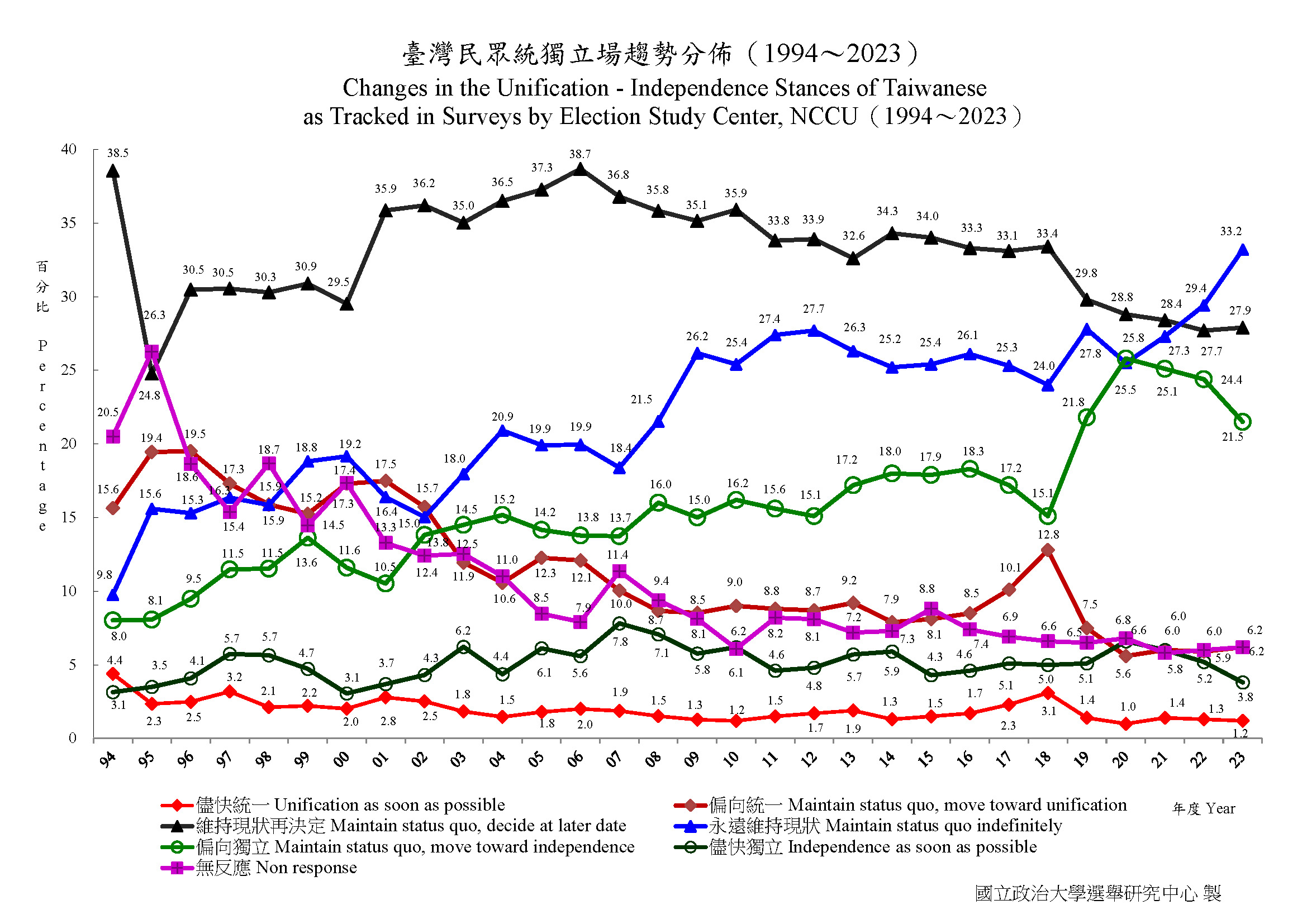
Independence vs. Unification
Source: National Chengchi University, https://esc.nccu.edu.tw/PageDoc/Detail?fid=7805&id=6962
Independence vs. Unification
Source: National Chengchi University, https://esc.nccu.edu.tw/PageDoc/Detail?fid=7805&id=6962
Will China invade/take over Taiwan?
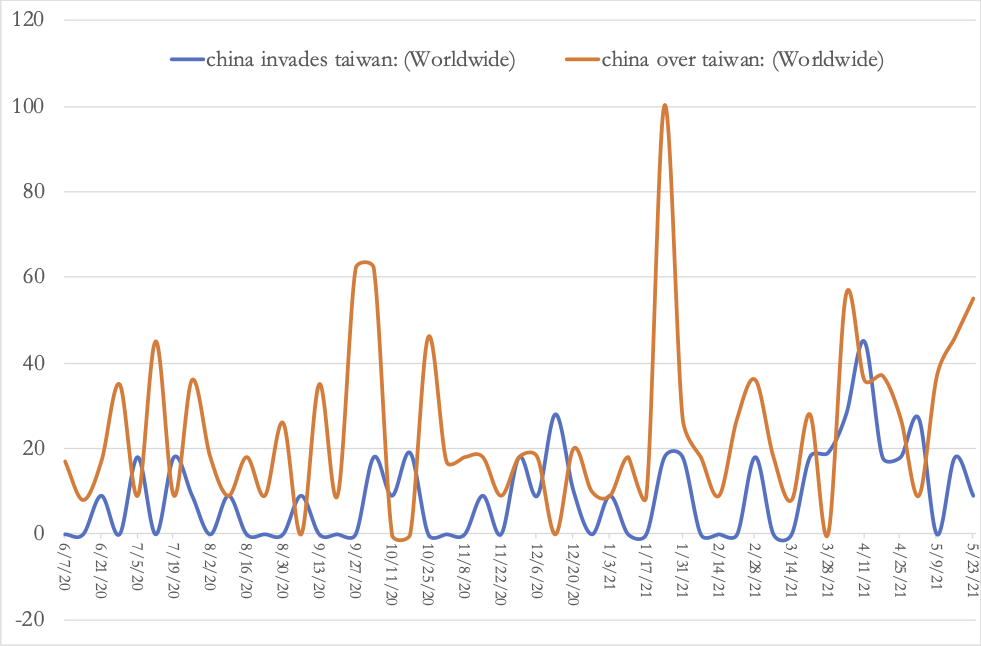

Will China invade/take over Taiwan?

Conclusion
-
Critical election introduces changes in political party system
- Taiwan generally two party system
- Proportional representation (PR) votes (不分區票)allows third party to take votes from two major parties
- More away from KMT or blue camp since 2014
- Major factors affecting blue camp:
- Loss of stewardship of status quo
- Loss of young voters due to education policy
- Loss of votes to middle of the road parties